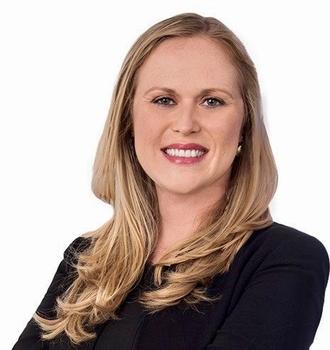
You don’t think of outer space as a place that requires measures to maintain its sustainability. But it does, and Master’s in Public Administration student Krystal Azelton is busy at work trying to see that space “remains usable, peaceful, safe, and secure for the long term.”
Azelton serves as director of space applications programs for the Secure World Foundation, a Colorado-based nonprofit with offices in Washington, D.C., that acts, according to its website, as “a research body, convener, and facilitator to promote key space security and other space-related topics and to examine their influence on governance and international development.”
About a dozen employees at Secure World Foundation advocate for a domain with no inhabitants other than the increasing number of “space tourists” and the astronauts orbiting the Earth in the International Space Station (ISS).
Which is a case in point: In December, the ISS had to swerve to avoid a collision with debris from a U.S. rocket. This followed the postponement of a spacewalk that sent ISS astronauts scurrying for cover as hundreds of thousands of uncatalogued pieces of debris headed their way. That incident was blamed on a Russian rocket that intentionally destroyed a Russian satellite; NASA condemned the action.
See? Space needs an agency like Secure World Foundation, the only U.S. nonprofit focusing on space sustainability, Azelton said.
Azelton says her career path became more down to earth, so to speak, when at age 17 “I came to understand I was probably not going to be an astronaut.”
After earning an undergraduate degree at Georgetown University’s Edmund A. Walsh School of Foreign Service, she performed political development work in Sudan and Afghanistan, among other locales. While she enjoyed politics, space continued to appeal to her.
“I like science, but I didn’t want to be a scientist. I like learning about science and reading about it but I didn’t want to be in a lab,” she said.
Her interests brought her to NASA, where she was able to combine her government and project management skills while exploring space—specifically, the politics of it. That led to her current position at Secure World Foundation, where she represents global space issues to policy makers.
Just as she decided to earn a master’s degree in public administration, which is a degree that focuses on developing leadership and organizational skills, the pandemic locked out students from classrooms. The silver lining? She usually travels 30 to 60 percent of the time for her job, she said, and COVID-19 kept her at home to study.
When classrooms reopened, Azelton was all too happy to attend in person: “I want to know my fellow students and meet my teachers… I’ve been pleased with how [administrators] have been able to accommodate my schedule.”
Once she graduates, the master’s degree will help her reach her next level of professional success while also creating a drive to “learn more and explore more in depth” what she’s learning in the classroom.
Bottom line for her: “The Schar School is a good fit for me. And it’s an excellent value for the money, to be honest.”
